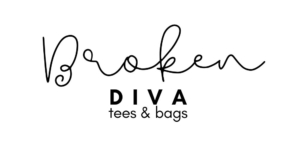True or false: Can our clothes transmit coronavirus?
There are many misconceptions and false rumours circulating about the coronavirus, including what links it to our wardrobe. Can clothes carry the virus? We’ll explain everything.
The current pandemic situation leads to many assumptions about how the virus can be transmitted. Doorknobs, handshakes, breathing the same air… Paranoia mixed with good intentions and we suddenly became suspicious of everything around us. What about our outfits? Are they vectors of disease? We’ll take a look at the rumors that are out there and try to answer them for you.
OUR CLOTHES MAY CARRY THE CORONAVIRUS
True. Although there are still few studies on this subject, we can indeed say that our clothes can wear Covid-19. If respiratory droplets (from an infected and contagious person) fall onto a fabric, the clothing may be a surface where the virus is present. The World Health Organization (WHO) indicates, however, that it is very difficult to accurately estimate the lifetime of the virus on clothing. Depending on the type of fabric and material, it could be anywhere from several hours to several days.
Specifically, the virus would tend to cling more and longer to porous and damp surfaces. The lifespan of the virus on this surface depends on the level of humidity, temperature, etc. For these reasons, it is important to clean your clothes regularly, as they can carry the virus for varying lengths of time.
NATURAL FABRICS ARE MOST LIKELY TO CARRY THE VIRUS.
Wrong. Again, studies on the virus are highly variable, so the ability of the virus to stick to textiles depends on many factors. On the Huffington Post, Robert Amler, dean of the School of Health Sciences and Practice at New York Medical College, explains: “Some researchers believe that fibres of porous materials catch viral particles, dry them out and break them apart,” said Robert Amler. Smooth surfaces such as leather and vinyl can be cleaned. Dr. Janette Nesheiwat, for example, has suggested that materials such as polyester trap germs more easily than cotton, which breathes.
IT IS POSSIBLE TO BE CONTAMINATED BY CLOTHING
Partly true. We must not fall into psychosis, but we must still adopt the right gestures so as not to put ourselves in danger. Most of the time, the virus is transmitted from person to person, through respiratory droplets, when a person coughs or sneezes. However, it is likely to be contaminated through a “soiled” surface. Indeed, if a person touches an object carrying the virus and then touches his or her face without having washed his or her hands in the meantime, there is a risk of contamination. To ensure safety, remember that nothing replaces essential barrier actions such as washing hands with soap and hot water several times a day.
WASHING YOUR CLOTHES WITH ALCOHOL IS AN EFFECTIVE SOLUTION AGAINST CORONAVIRUS.
Wrong. If you spend all your time smearing your hands with hydro-alcoholic solutions, you have to be very careful what you apply to your laundry. Indeed, applying alcohol or chlorine to fabrics will not kill the coronavirus, even if it seems to be an effective solution. This practice could even be very dangerous, as the WHO points out: “Spraying these substances can be harmful to clothing or mucous tissues”. Nevertheless, these products can be useful for disinfecting surfaces.
HIGH HEAT NEUTRALIZES THE VIRUS ON THE FABRIC.
True. If you have a feeling you may have come into contact with the virus, there are simple solutions to disinfect your laundry and kill the virus.It is recommended washing the clothes of a confirmed infected person “in a washing machine with a regular detergent and a cycle at 60 degrees minimum for at least 30 minutes”.
Indeed, Covid-19 loses its infectious potential from an exposure at 56 degrees for twenty to thirty minutes or at 65 degrees for five to ten minutes.
We believe than in the coming weeks, we will still have to wear clothes :). But we don’t have to consider them as our ennemies. At Broken Diva, we support the role of fashion in our daily lives. We think that will this era we are entering will improve the way that we, citizens of the world, are living, and we think that fashion will definitely play a part in it.






